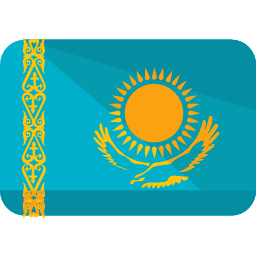Notary and Apostille Services for Legal Documents in the Philippines:
888-4004-234
Simbaking2022
In the Philippines, notary and apostille services play a vital role in ensuring the authenticity and validity of legal documents. Whether you are an individual or a business entity, understanding the processes involved in notarization and obtaining an apostille can be crucial for various legal transactions. So Notaryappostille is the best platform that provides Notary and Apostille services at a responsible price in Philippines.
Notaryappostille Services in Philippines
In the Philippines, Notaryappostille provides various types of services available for document verification. These services can be helpful for individuals and organizations to ensure the authenticity and validity of different types of documents. Here are some common services for document verification in the Philippines:
Notary Public Services: Notary publics are authorized individuals who can administer oaths and affirmations, as well as certify and authenticate documents. They can verify the authenticity of signatures, witness the signing of documents, and provide a notarial seal or stamp to confirm the document’s validity.
Authentication Services: The authentication process is carried out by the Department of Foreign Affairs (DFA) in the Philippines. This service verifies the genuineness of documents issued in the Philippines that will be used abroad or foreign documents to be used in the Philippines. The DFA will attach an “apostille” or authentication certificate to the document, confirming its authenticity.
Legalization Services: Legalization services are similar to authentication services but are specifically required for documents that need to be used in countries that are not part of the Apostille Convention. The process involves obtaining authentication from the DFA and subsequently from the embassy or consulate of the destination country.
Professional Regulation Commission (PRC) Verification: PRC verification is necessary for documents issued by professional regulatory boards in the Philippines. This service ensures the legitimacy of licenses, certifications, and other professional documents issued by the PRC. Verification can be requested through the PRC website or in person at their office.
Educational Credential Verification: Educational institutions in the Philippines often provide verification services for academic records, diplomas, and transcripts. This verification confirms the authenticity of educational credentials and can be useful for employment, further education, or immigration purposes.
Document Authentication and Registration Service (DARS): The DARS is a service provided by the Philippine Statistics Authority (PSA). It offers the authentication and registration of civil registry documents such as birth certificates, marriage certificates, and death certificates. This service ensures the accuracy and reliability of these vital records.
Benefits of using Notaryappostille services
Legal Validity and Authenticity
Notaryappostille services provide official and legal verification of signatures and documents. Having a document notarized adds credibility and authenticity, as the notary public ensures that the document meets all legal requirements and that the signatories have willingly and knowingly signed it. This can be crucial in legal proceedings, business transactions, and other situations requiring legal documentation.
Prevention of Fraud and Disputes
By acting as impartial witnesses, notaries help deter fraudulent activities and disputes related to the authenticity of signatures or documents. Notaryappostille follow strict procedures to verify the identity of the signatories, ensuring that they are the persons they claim to be. This provides an added layer of protection against potential fraud or misunderstandings.
International Recognition and Acceptance
Notaryappostille services facilitate the international recognition and acceptance of legal documents. The Apostille is recognized by countries that are members of the Apostille Convention, simplifying the process of using documents issued in one country in another member country. It eliminates the need for further authentication or legalization, saving time, effort, and potential expenses for individuals and businesses engaged in international transactions.
Facilitation of International Business and Travel
The availability of Notaryappostille services in the Philippines makes it easier for individuals and businesses to engage in international activities. Whether it's setting up a business abroad, studying overseas, or entering into international contracts, having notarized and apostilled documents ensures smoother and more efficient processes. It helps in complying with the legal requirements of foreign jurisdictions and gives confidence to foreign counterparts or authorities in recognizing the validity of the documents.
Compliance with Legal and Regulatory Requirements
Many legal processes and transactions require notarized documents as per local laws and regulations. For example, real estate transactions, wills, powers of attorney, and affidavits often require notarization. By availing of Notaryappostille services, individuals and businesses ensure compliance with the necessary legal requirements, avoiding potential complications or rejections due to non-compliance.
Enhanced Document Integrity and Reliability
Notaryappostille services provide an additional layer of integrity and reliability to legal documents. The notarial seal, signature, and stamp indicate that the document has undergone the scrutiny of a licensed notary public, increasing confidence in its contents and authenticity. This can be particularly important in cases where legal documents need to be presented in court, government agencies, or other official settings
Process for verification of documents
When it comes to verifying the authenticity of legal documents, the process can vary depending on the type of document and the intended use. Certainly! The three main processes for document verification: Notary, Postal, and Legalization
Notary
Notarization is a process performed by a notary public, an authorized official who verifies the authenticity of documents and ensures their legal validity. The notary public confirms the identity of the signatories and witnesses by checking their identification documents, such as a driver's license or passport. Notarization is commonly required for various legal documents, such as affidavits, powers of attorney, contracts, and real estate transactions.
Postal
The postal verification process typically involves sending documents through postal mail for verification purposes. This method is commonly used when original documents need to be verified or certified copies are required. The individual or organization sending the documents will send them to the intended recipient via registered or certified mail.
Legalization
Legalization is a process that validates the authenticity of documents for international use. It is often required when documents issued in one country need to be recognized and accepted by another country. The process of legalization typically involves several steps:
a) Document Authentication
The document is first authenticated by the relevant authorities in the issuing country. This may include verifying the signatures of officials, such as a notary public or government representative, and attaching an apostille or authentication certificate.
b) Consular Legalization
If the country where the document will be used is not a party to the Apostille Convention, the document may need to undergo consular legalization. This involves submitting the authenticated document to the consulate or embassy of the destination country for further verification. The consulate will review the document and attach a consular stamp or certificate to confirm its validity.
Conclusion
Notaryappostille offers numerous benefits, including legal validity, authenticity, prevention of fraud, international recognition, compliance with regulations, and enhanced document integrity. By ensuring that documents are properly verified, individuals and businesses can navigate legal processes more effectively, gain credibility, and facilitate various transactions both domestically and internationally. It is crucial to be familiar with the specific requirements and processes set by each authority involved in document verification.




























